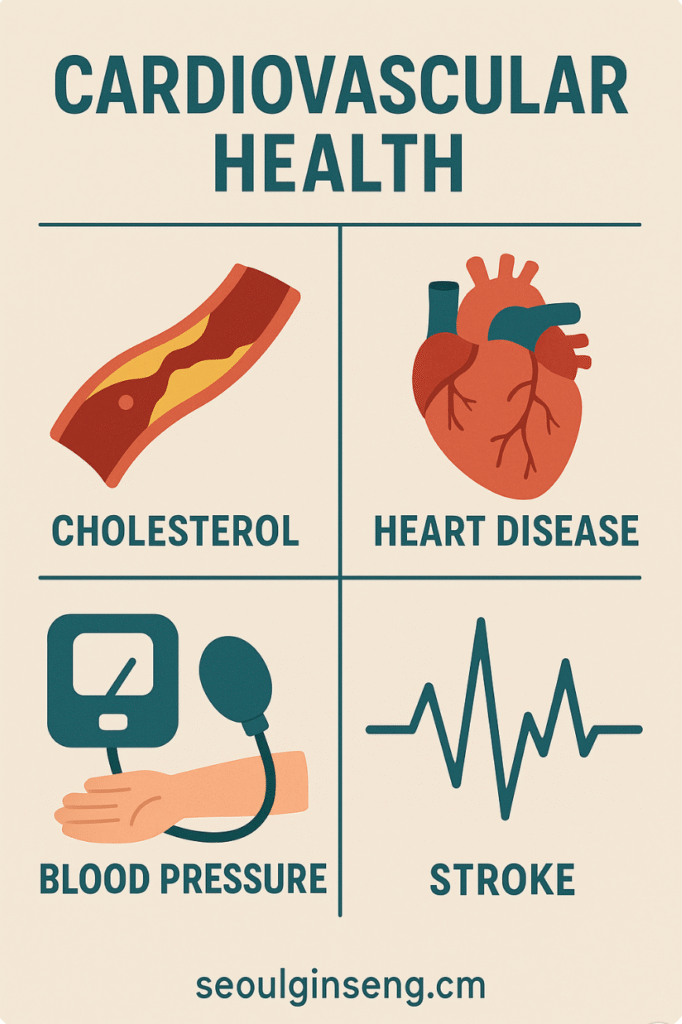Cardiovascular health refers to the overall well-being of the heart and blood vessels, which play a vital role in transporting oxygen and nutrients throughout the body. With cardiovascular diseases (CVDs) being the leading cause of death globally, maintaining heart health is one of the most important aspects of preventive healthcare. According to the World Health Organization (WHO), over 17 million people die from CVDs each year, representing about 32% of all global deaths.
Key Risk Factors
1. High Cholesterol
Excess cholesterol can accumulate in arteries, forming plaques that narrow blood flow—a condition known as atherosclerosis. This significantly increases the risk of heart attack and stroke.
2. High Blood Pressure
Hypertension is often called the “silent killer” because it shows no symptoms until severe damage occurs. It forces the heart to work harder, damaging arteries and leading to long-term cardiovascular complications.
3. Heart Disease
Coronary artery disease, arrhythmias, and heart failure are common heart conditions. Unhealthy diet, sedentary lifestyle, smoking, and stress are major contributors.
4. Stroke
Stroke occurs when blood supply to the brain is interrupted, often due to a clot or ruptured blood vessel. It can lead to long-term disability or death if not treated promptly.
How to Improve Cardiovascular Health
Adopt a Heart-Healthy Diet
- Emphasize fruits, vegetables, whole grains, lean protein, and omega-3 fatty acids.
- Limit sodium, trans fats, and processed foods.
- Consider the DASH diet or Mediterranean diet, both proven to lower blood pressure and improve heart health.
Stay Physically Active
At least 150 minutes of moderate exercise per week reduces blood pressure, improves cholesterol levels, and strengthens the heart muscle.
Quit Smoking and Limit Alcohol
Tobacco damages blood vessels and raises the risk of stroke, while excessive alcohol raises blood pressure. Quitting smoking and moderating alcohol intake are among the most effective steps for heart protection.
Manage Stress
Chronic stress increases cortisol levels, contributing to hypertension and poor cardiovascular outcomes. Stress reduction methods such as meditation, yoga, and adequate sleep are powerful tools for prevention.
Regular Health Screenings
Monitoring blood pressure, cholesterol, and glucose levels helps detect risks early. Annual checkups provide a safety net for long-term cardiovascular wellness.
Conclusion
Cardiovascular health is about more than preventing disease—it’s about cultivating daily habits that strengthen the heart and circulatory system for a longer, healthier life. Through diet, exercise, stress management, and regular screenings, individuals can dramatically lower their risk of heart attack, stroke, and other cardiovascular conditions.
For more insights, visit trusted resources like the American Heart Association.
🇰🇷 Premium Korean Ginseng Online Shop







